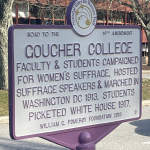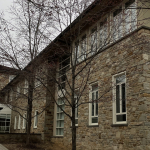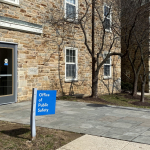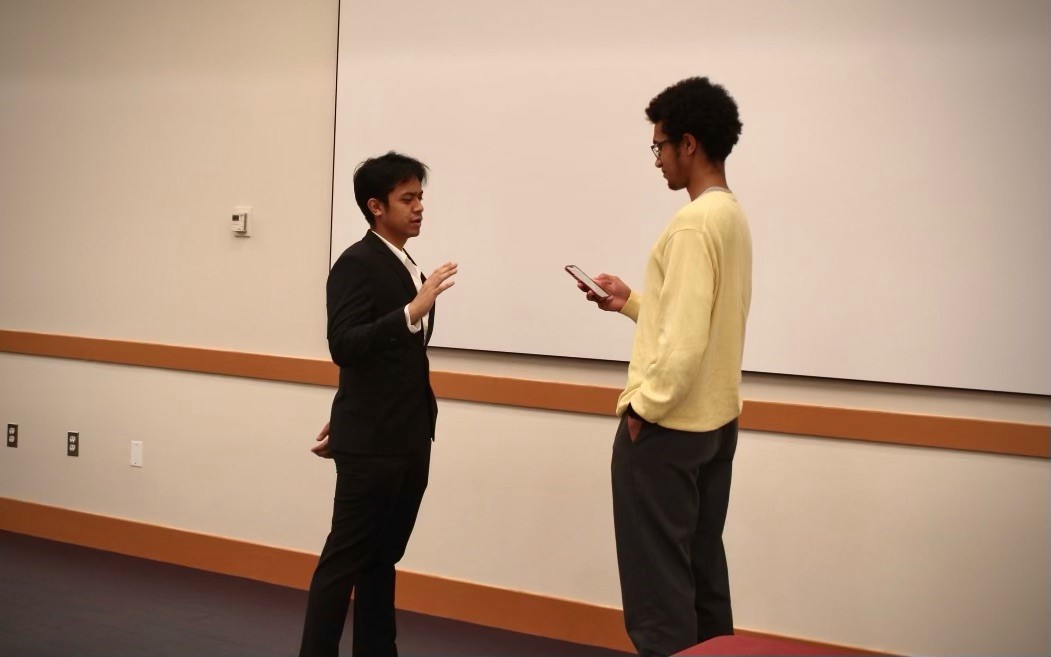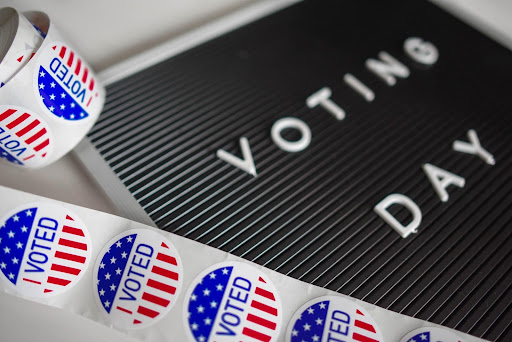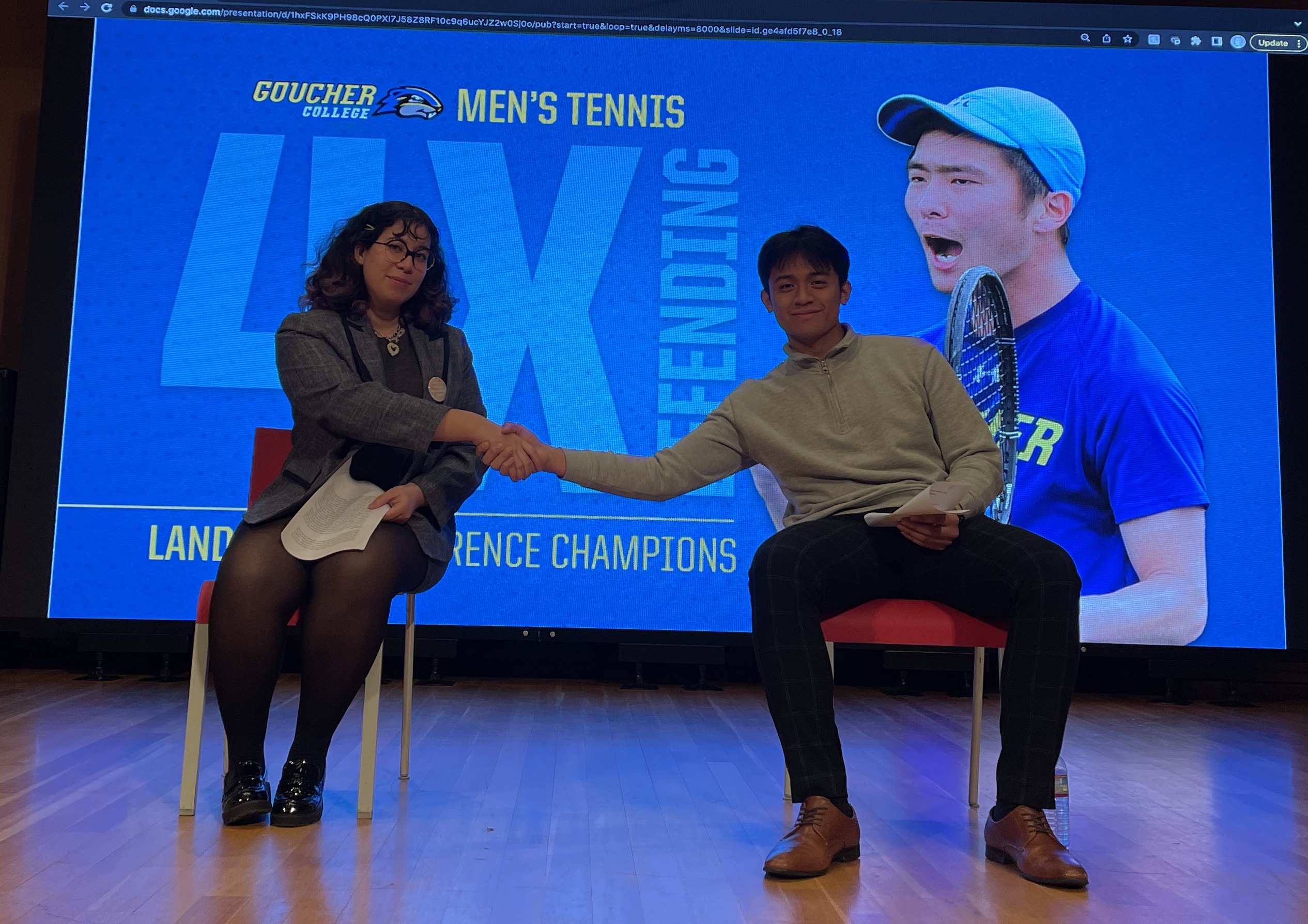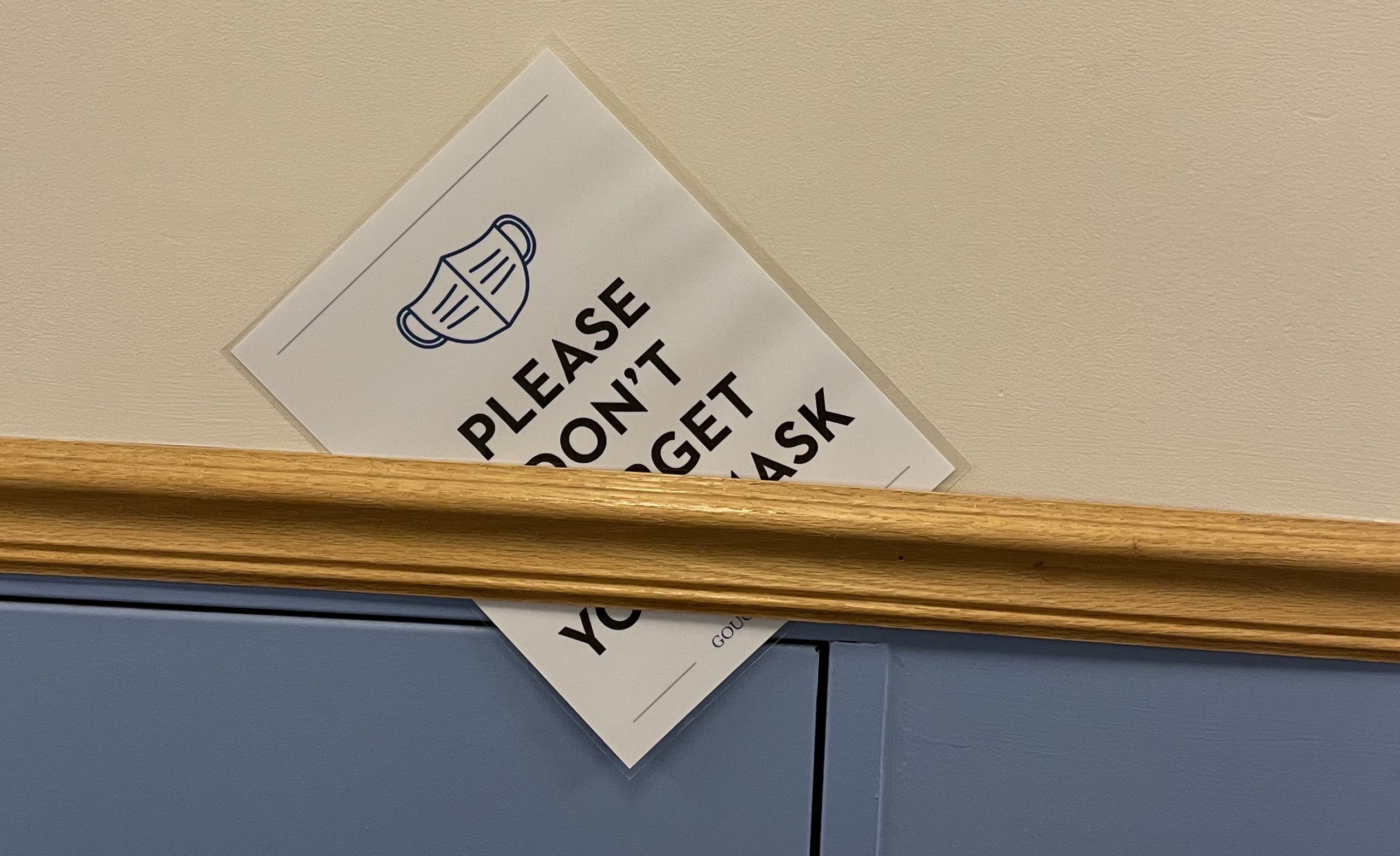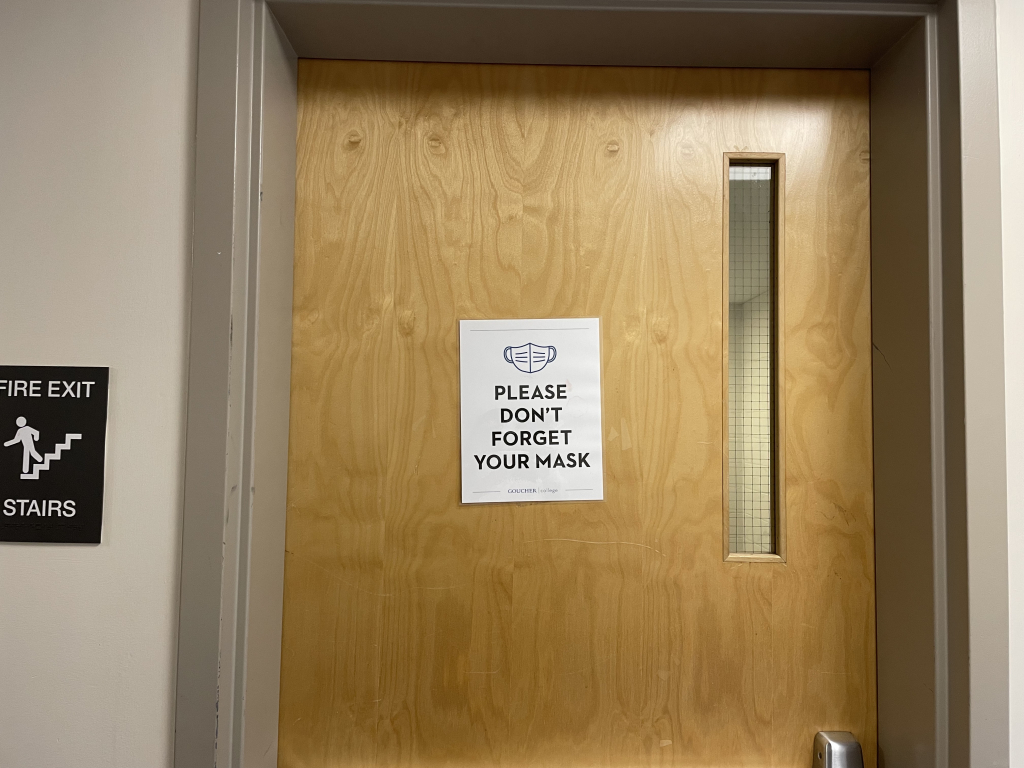BCoPD Presence on Campus Will Cause Additional Harm to Students (Opinion)
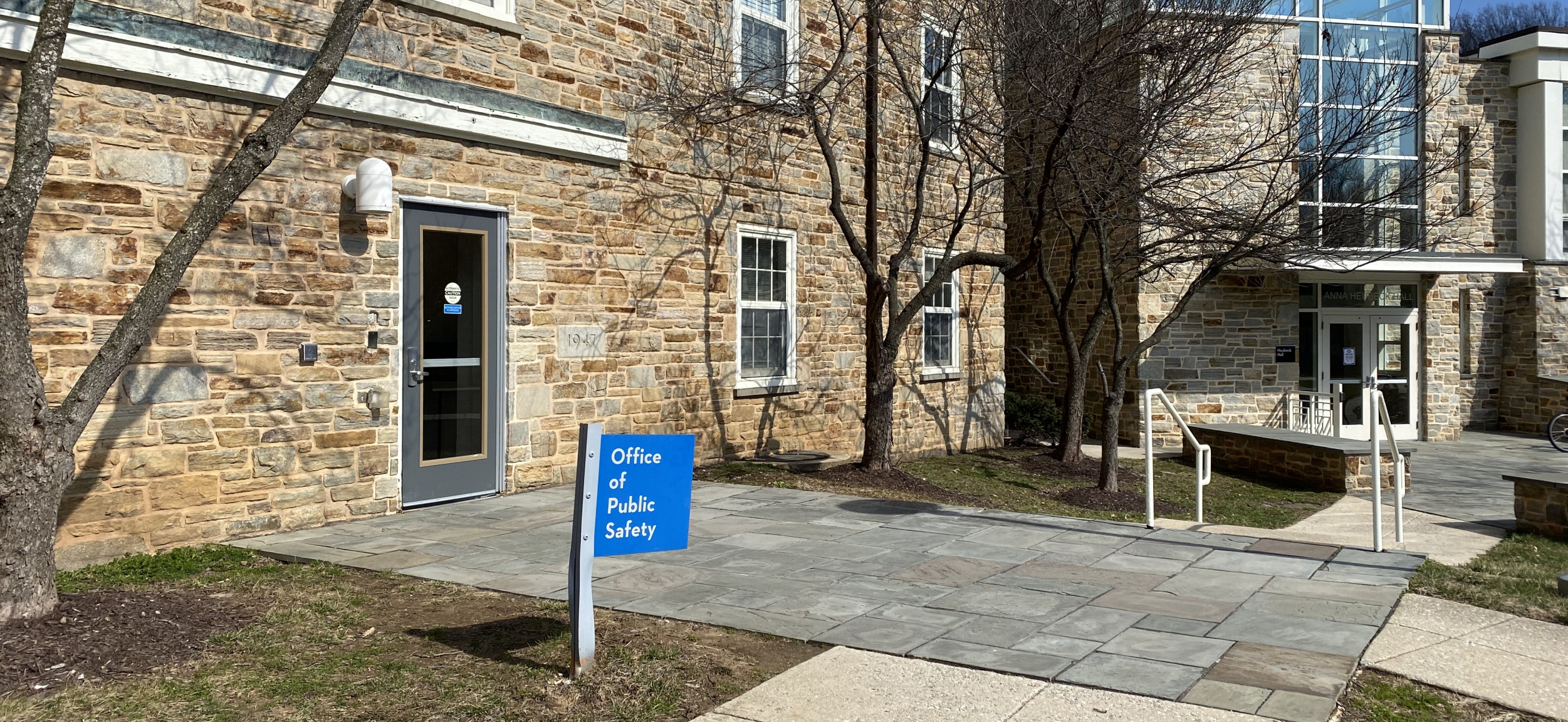
Baltimore County Police (BCoPD) presence on campus has been one of the proposed solutions following the racist, anti-Black graffiti found in Heubeck Hall just before Winter break and the general rise in vandalism last semester. If implemented, this plan will disproportionately affect Goucher’s Black community, the very people meant to be protected, and create a hostile environment for all groups who are systematically targeted by police.
On January 20 of last year, nearly a month after the crime initially happened, an email titled “Safety & Security Communication Series” was sent to all official faculty, students and staff detailing the crime and the efforts administration has been making to keep our community informed.
BCoPD was briefly mentioned in this email as “leading the investigation into each incident and working closely with our office of Campus Safety.” This is not an unfamiliar occurrence, since BCoPD also led the investigation for a similar crime that took place in 2018.
On February 15, a Community Conversation was held to address several issues facing the Goucher community, including this hate crime. At this Community Conversation administrative officials confirmed that Goucher is considering inviting BCoPD to patrol the Loop in addition to their daily rounds of the Towson area. Despite immediate pushback from students present at the community conversation, administrators seemed adamant to go through with this plan.
Additionally, on February 23, a sit-in at a Board of Trustees lunch was carried out by student protesters in an effort to gauge trustees’ awareness of the hate crime that occurred and communicate what students felt was a lack of transparency between administration and students regarding their plans of action. The overall consensus among students present at both the community conversation and the sit-in has been overwhelmingly against BCoPD presence on campus.
According to Police Scorecard, a nationwide public evaluation of policing in the United States, BCoPD has more racial disparities in deadly force than 71% of other Maryland police departments, and 68% of people murdered by this department are Black. Black people in America have historically been the targets of over policing and excessive police brutality. Bringing in a group that has such a long local and national history of enacting violence against the very group that Goucher claims to be attempting to protect is counterintuitive at best, and has the potential to create unforeseen violent consequences.
To subject Black students on campus to further trauma and psychological unease will only worsen the feelings of danger and distrust that already exist within Goucher’s marginalized communities. While it is entirely logical to increase security on campus in order to keep students safe, the presence of the BCoPD will simply pose more problems than it will solutions. Rather than an immediate jump to outsourcing police presence, measures of public safety such as having someone monitor the gatehouse and actually keeping the gates down are a good start.
Despite the argument that the increased trend in crime on other nearby college campuses points to the future possibility of crime on Goucher’s campus, the addition of the BCoPD remains an irrational solution. Schools like Towson University and Morgan State University already have police presence, which unfortunately has not stopped violence from occurring on their campuses.
If the administration wishes to familiarize BCoPD with Goucher’s campus in the event of emergencies, rather than have them patrol the loop they could simply start by giving them a tour. If an in person tour isn’t feasible, virtual tours are available for viewing on Goucher’s website.
By Calder Brown and Dom McKinney
* Disclaimer: This piece was published as a student’s op-ed submission. The Quindecim is a space for all students within the Goucher community to express their views and beliefs. These pieces are released in the name of journalistic integrity and not in an attempt to antagonize or reflect the institution of Goucher as a whole.



